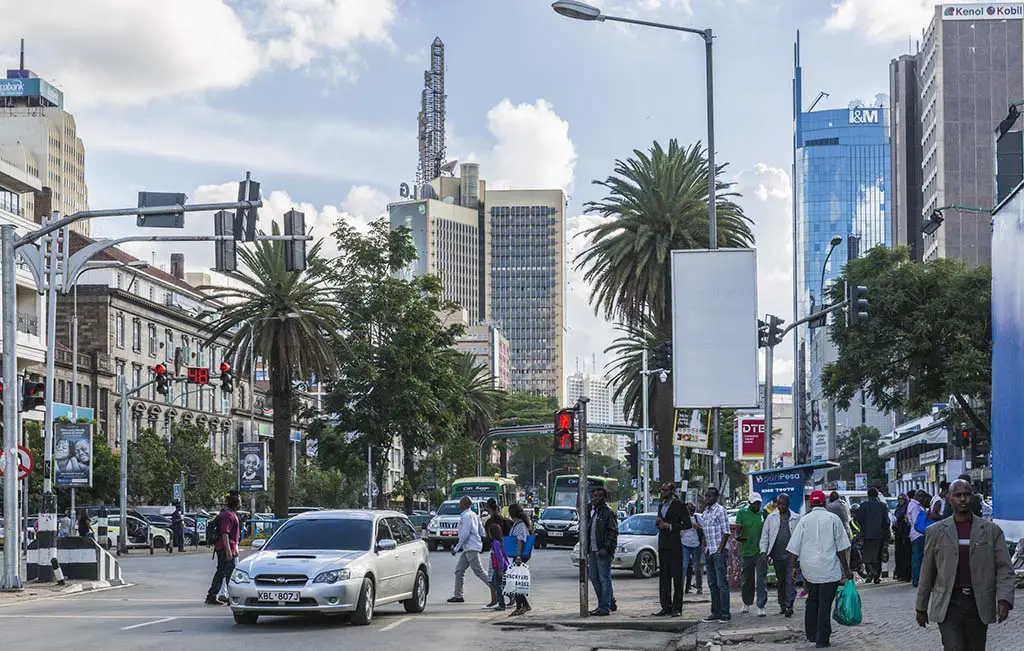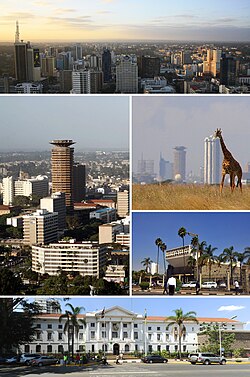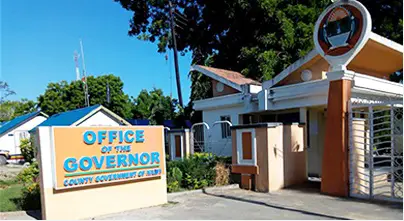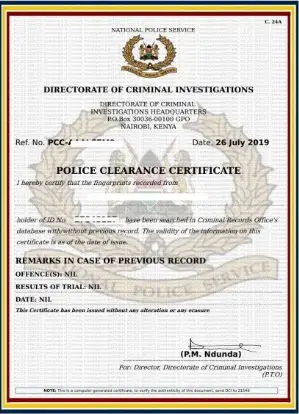Nestled within the vibrant heart of Kenya, Nairobi City shines as a radiant beacon of cultural diversity, natural beauty, and cosmopolitan charm. With its bustling streets, iconic wildlife reserves, and thriving arts scene, this captivating metropolis beckons both locals and tourists alike to immerse themselves in its captivating energy. From the lively markets of Maasai Market, where vibrant fabrics and intricate crafts come to life, to the tranquil oasis of Nairobi National Park, where iconic African wildlife roam freely against a backdrop of breathtaking savannahs, Nairobi City is a destination that never fails to leave an indelible mark on your soul.
Geography
Location
Nairobi is the capital and largest city of Kenya, located in the southern part of the country. Situated on the Nairobi River, the city is positioned at an altitude of 1,795 meters (5,889 feet) above sea level. Its geographical coordinates are 1°16′S latitude and 36°48′E longitude.
Climate
Nairobi experiences a mild and temperate climate throughout the year. The city enjoys a moderate temperature with average highs ranging from 21°C (70°F) to 26°C (79°F) and average lows between 10°C (50°F) to 15°C (59°F). The city’s climate is influenced by its elevation, which contributes to cooler temperatures compared to other parts of Kenya. Nairobi experiences two rainy seasons, with the long rains occurring between March and May and the short rains falling between October and December.
Physical Features
Nairobi is located on the eastern edge of the East African Rift Valley, which provides the city with stunning landscapes and natural beauty. The city is surrounded by rolling hills, including the notable Ngong Hills to the west. The Nairobi National Park, located just outside the city, is a unique feature as it is one of the few urban national parks in the world. This park allows visitors to observe diverse wildlife, including lions, zebras, giraffes, and many more, against the backdrop of the city skyline.
History
Colonial Era
Nairobi has a rich and vibrant history that dates back to the late 19th century. Initially, the area where the city stands today was a swampy, uninhabited place. However, it gained importance with the construction of the Mombasa-Uganda Railway in 1899. Nairobi served as a depot along this railway and became a central hub for trade and administration for the British colonialists.
Independence
After Kenya gained independence from British colonial rule in 1963, Nairobi became the capital city of the newly formed nation. The city played a pivotal role in the independence movement, and its significance continued to grow as it became the center for political, economic, and cultural development in Kenya.
Modern Nairobi
Today, Nairobi is a bustling and cosmopolitan metropolis. The city has undergone significant transformation over the years, embracing modern infrastructure and development. Skyscrapers, shopping malls, and vibrant neighborhoods coexist with traditional markets and historical landmarks, creating a unique blend of old and new. Nairobi’s growth has positioned it as one of Africa’s leading cities and a major contributor to Kenya’s economy.
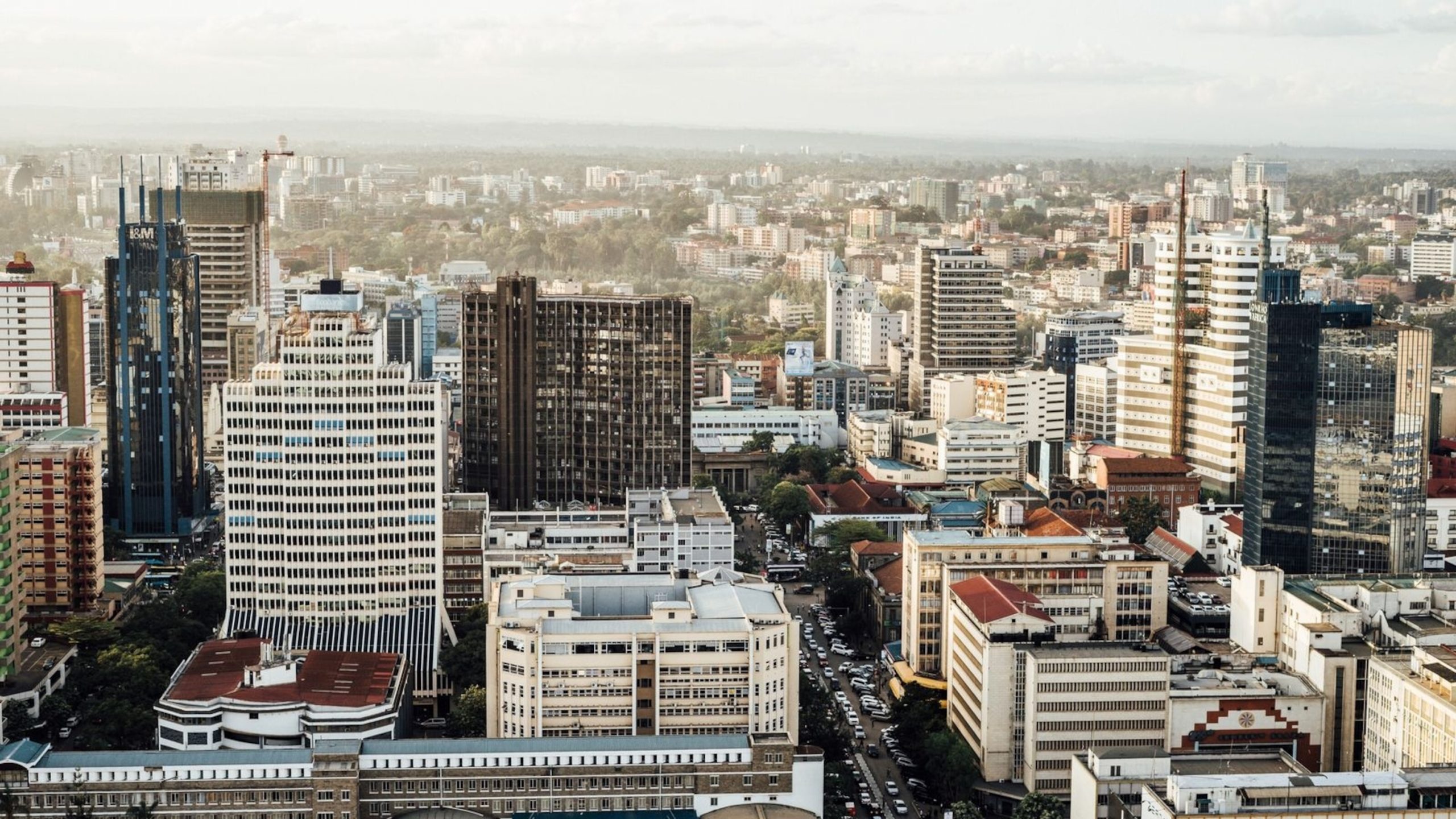
Demographics
Population
Nairobi boasts a diverse and growing population, with estimates putting it at over 4 million residents. The city’s population has been steadily increasing due to factors such as rural-urban migration, employment opportunities, and the city’s economic significance. Nairobi is known for its vibrant multiculturalism, attracting people from various backgrounds and ethnicities.
Ethnicity
The city is home to numerous ethnic groups, with the main communities being the Kikuyu, Luo, Luhya, Kamba, Somali, and Maasai. The Kikuyu community is the largest, comprising a significant portion of Nairobi’s population. The diversity of ethnicities contributes to the rich cultural tapestry and traditions found in the city.
Languages
English and Swahili are the official languages of Kenya, and Nairobi is no exception. English is widely spoken in business, education, and government sectors, while Swahili serves as the lingua franca among the different ethnic communities. Nairobi’s multicultural environment also means that numerous local languages and dialects can be heard throughout the city.
Culture
Art and Music
Nairobi’s cultural scene is vibrant and diverse, with a thriving arts and music community. The city is known for its art galleries, showcasing contemporary and traditional African artwork. Many local artists, both established and emerging, find inspiration within Nairobi’s vibrant atmosphere. Additionally, Nairobi has become a hub for music, particularly in the genres of Afrobeat, rap, and gospel. The city’s nightlife is alive with live performances and music festivals, attracting both local and international talents.
Cuisine
Nairobi’s culinary scene is a reflection of the country’s diverse ethnicities, resulting in a rich and flavorful cuisine. From traditional Kenyan dishes like nyama choma (grilled meat) and ugali (a maize-based porridge), to international cuisines such as Indian, Chinese, Italian, and more, Nairobi offers a wide range of culinary experiences. Street food markets, upscale restaurants, and local eateries cater to different tastes and budgets, allowing residents and visitors to indulge in a varied gastronomic adventure.
Festivals
Nairobi hosts numerous festivals and cultural events throughout the year, celebrating art, music, film, and heritage. The Nairobi International Film Festival showcases local and international films, while the Nairobi Cultural Festival celebrates Kenya’s diverse cultural heritage. Other festivals like the Koroga Festival, Blankets and Wine, and the International Jazz Festival draw crowds who enjoy music, food, and a lively atmosphere. These events provide platforms for artists, expose the community to different cultures, and create spaces for people to come together and celebrate.
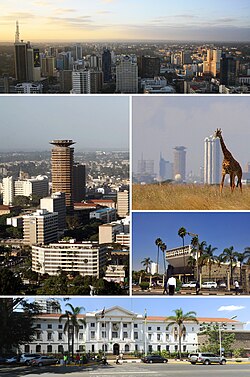
Government and Politics
Local Government
Nairobi has a county government system, with an elected governor at the helm. The governor and the county assembly are responsible for making local policies, managing public services, and ensuring the overall well-being of the city’s residents. The county government works in conjunction with the national government to provide essential services and maintain order in the city.
National Politics
As the capital city, Nairobi plays a significant role in national politics. It is home to the national parliament, where members of parliament represent different constituencies across the country. Nairobi’s central location and political environment make it an important hub for political activities, including rallies, conferences, and negotiations.
Administrative Divisions
Nairobi is divided into several administrative divisions called sub-counties. These divisions include Westlands, Dagoretti, Lang’ata, Starehe, Kamukunji, Kasarani, Embakasi, and Makadara, among others. Each sub-county is led by an elected Member of County Assembly (MCA) who represents the interests of the residents at the county assembly level.
Infrastructure
Transportation
Nairobi has a well-developed transportation network, accommodating both residents and visitors. The city is served by Jomo Kenyatta International Airport, the largest airport in East Africa, providing connections to various destinations worldwide. Within the city, public transportation options include buses, matatus (minibusses), and taxis. The construction of the Nairobi Metropolitan Area Commuter Rail system has improved connectivity between the city center and its suburbs.
Utilities
Nairobi has reliable utilities, including electricity, water, and telecommunications. The national power grid ensures a stable electricity supply, with the city experiencing fewer power outages compared to other parts of the country. Water is provided by the Nairobi City Water and Sewerage Company, ensuring residents have access to this essential resource. Telecommunications companies offer mobile and internet services, keeping Nairobi well-connected and facilitating business and communication needs.
Housing
As Nairobi continues to grow, the city faces challenges in meeting the demand for housing. Various types of housing options are available, ranging from apartments and townhouses to standalone houses and gated communities. The city’s suburbs offer a mix of residential and commercial neighborhoods, providing residents with access to amenities and recreational facilities. However, affordable housing remains a concern, prompting ongoing efforts by the government and private sector to address this issue.
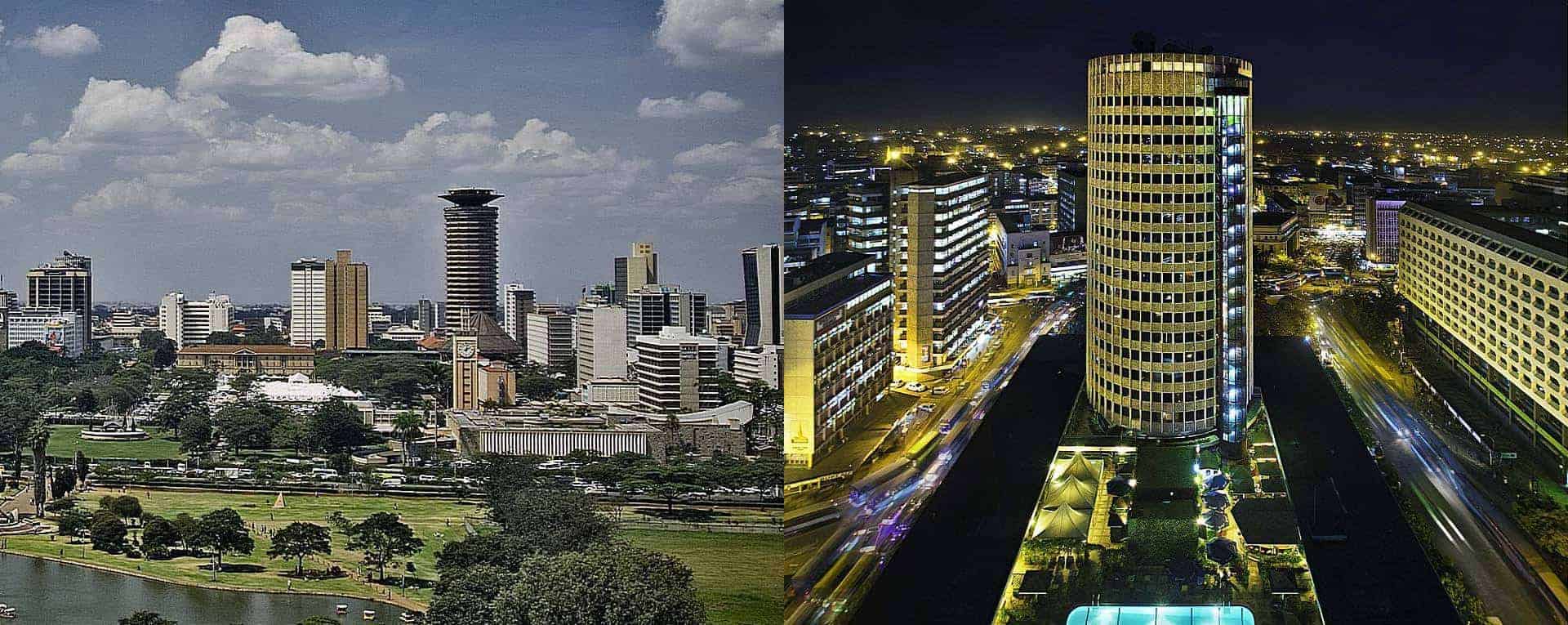
Economy
Major Industries
Nairobi serves as the economic powerhouse of Kenya, hosting numerous industries that drive the country’s economy. The city is a major financial center, housing the Nairobi Securities Exchange and serving as the regional headquarters for many national and international banks. Other significant sectors include tourism, manufacturing, information technology, telecommunications, and services such as healthcare and education.
Tourism
Nairobi has emerged as a popular tourist destination, attracting visitors with its unique blend of urban and natural attractions. The city’s national park allows visitors to experience wildlife within close proximity to the urban environment. Nairobi’s museums, such as the National Museum of Kenya and the Karen Blixen Museum, provide insight into the country’s history and culture. Additionally, the city offers a gateway to exploring other attractions in Kenya, including safaris, beaches, and national parks.
Entrepreneurship
Nairobi has gained recognition as a thriving hub for entrepreneurship and innovation. The city is known as the “Silicon Savannah,” with a growing startup ecosystem and a supportive environment for tech-based companies. Co-working spaces, incubators, and accelerators provide resources and networking opportunities for aspiring entrepreneurs. This vibrant startup culture contributes to job creation, economic growth, and the city’s overall dynamism.
Education
Schooling System
Nairobi boasts a robust education system, offering a wide range of educational institutions. Primary and secondary schools, both public and private, cater to the needs of students at various levels. The city is home to prestigious schools known for their academic excellence and extracurricular activities. Nairobi also hosts international schools, providing educational options for expatriate families.
Universities
Nairobi is a higher education hub, hosting several universities and colleges. The University of Nairobi, founded in 1970, is the oldest and one of the most renowned universities in Kenya. Other notable institutions include Kenyatta University, Strathmore University, and United States International University-Africa. These universities offer diverse courses and programs, attracting students from across Kenya and beyond.
Technical Education
Nairobi recognizes the importance of technical education and skills development. Technical and vocational training institutes equip students with practical skills relevant to various industries. These institutions provide training in fields such as engineering, agriculture, hospitality, media and communication, and many more. Technical education plays a crucial role in preparing students for employment and promoting economic growth.
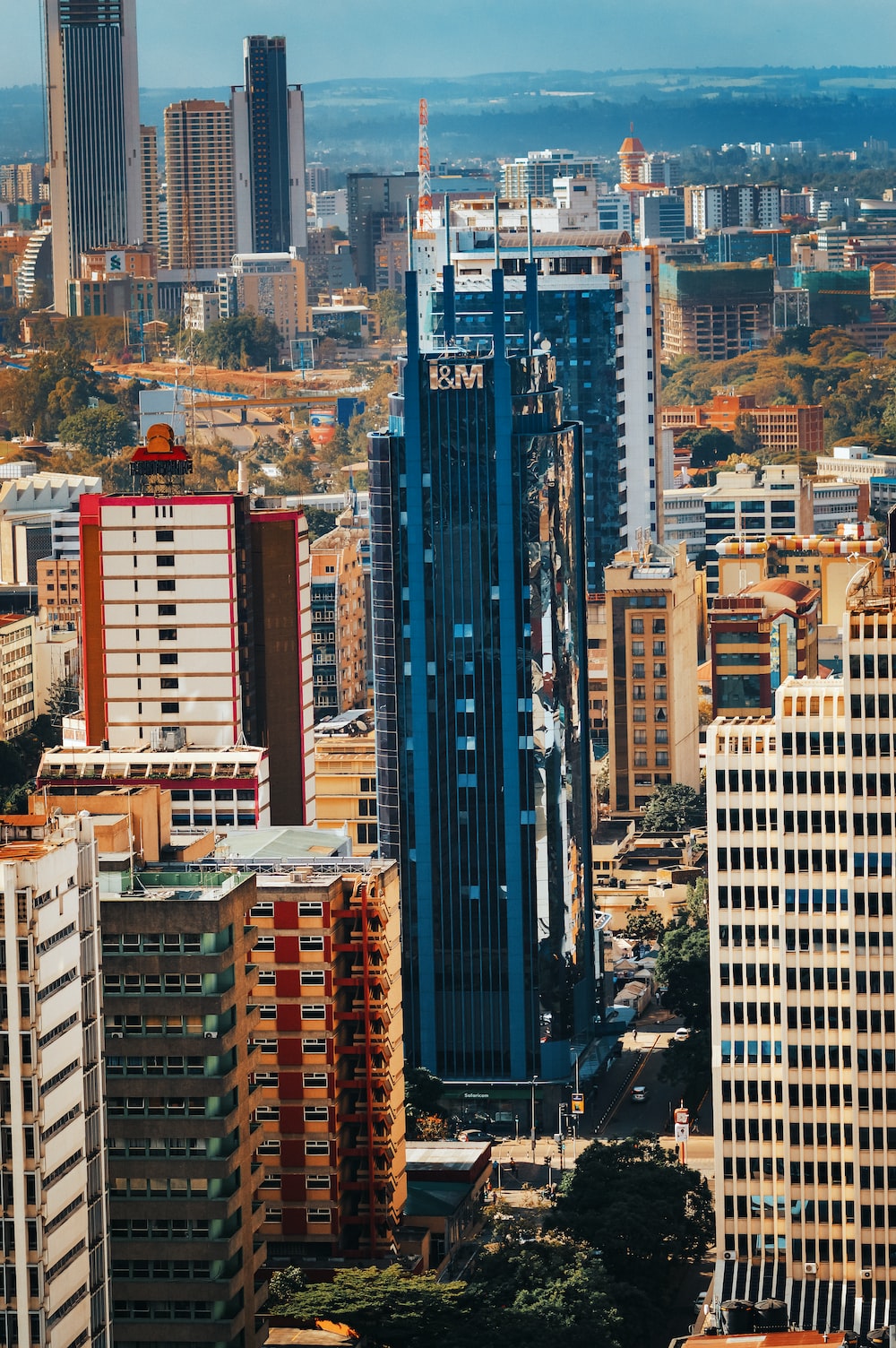
Healthcare
Hospitals
Nairobi has a well-established healthcare system, providing medical services to its residents and beyond. The city is home to reputable hospitals and medical facilities that offer a wide range of healthcare services, including specialized treatments and surgeries. Kenyatta National Hospital, Nairobi Hospital, and Aga Khan University Hospital are some of the prominent medical institutions in Nairobi, renowned for their high standard of care.
Public Health
Public health initiatives play a vital role in ensuring the well-being of Nairobi’s population. The city’s public health department works towards disease prevention, health promotion, and ensuring access to healthcare services for all residents. Initiatives include vaccination campaigns, disease surveillance, and health education programs aimed at improving community health outcomes.
Access to Healthcare
While Nairobi boasts quality healthcare facilities, access to healthcare remains a concern for some segments of the population. Affordability and geographic proximity to health facilities can pose challenges for marginalized communities. Efforts are being made to improve access to healthcare services through the provision of health centers, mobile clinics, and health insurance schemes targeted at vulnerable populations. These initiatives aim to bridge the healthcare gap and ensure that all residents have access to quality medical care.
Tourist Attractions
National Park
One of Nairobi’s most unique attractions is the Nairobi National Park, located just outside the city center. Spanning an area of 117 square kilometers (45 square miles), it is one of the few national parks situated within a capital city worldwide. The park offers stunning landscapes and the opportunity to spot a variety of wildlife, including lions, giraffes, rhinos, zebras, and more. Visitors can embark on game drives, guided walks, or even enjoy a picnic while marveling at the city skyline in the distance.
Museums
Nairobi is home to several museums that showcase the country’s rich history and cultural heritage. The National Museum of Kenya houses extensive collections related to Kenya’s archaeology, ethnography, paleontology, and art. The museum offers insights into the country’s natural history, cultural diversity, and traditional craftsmanship. Additionally, the Karen Blixen Museum, located in the former home of the renowned Danish author, provides a glimpse into the colonial era and the life of Karen Blixen, who wrote “Out of Africa.”
Monuments
Nairobi features various monuments that commemorate significant moments in the city’s history and celebrate national heroes. The Kenyatta International Conference Centre, with its distinctive tower, stands as a symbol of Kenya’s independence and unity. The statue of Jomo Kenyatta, the first President of Kenya, serves as a reminder of his pivotal role in the country’s freedom struggle. These monuments not only contribute to Nairobi’s architectural landscape but also represent the values and aspirations of the Kenyan people.
In conclusion, Nairobi is a vibrant and multicultural city with a rich history, diverse demographics, and a thriving economy. Its geographical location, moderate climate, and stunning physical features make it an attractive destination for both residents and tourists. The city’s cultural scene, educational institutions, and healthcare facilities contribute to a high quality of life for its residents. With ongoing development and a focus on sustainability, Nairobi continues to grow and evolve as a dynamic African metropolis.
